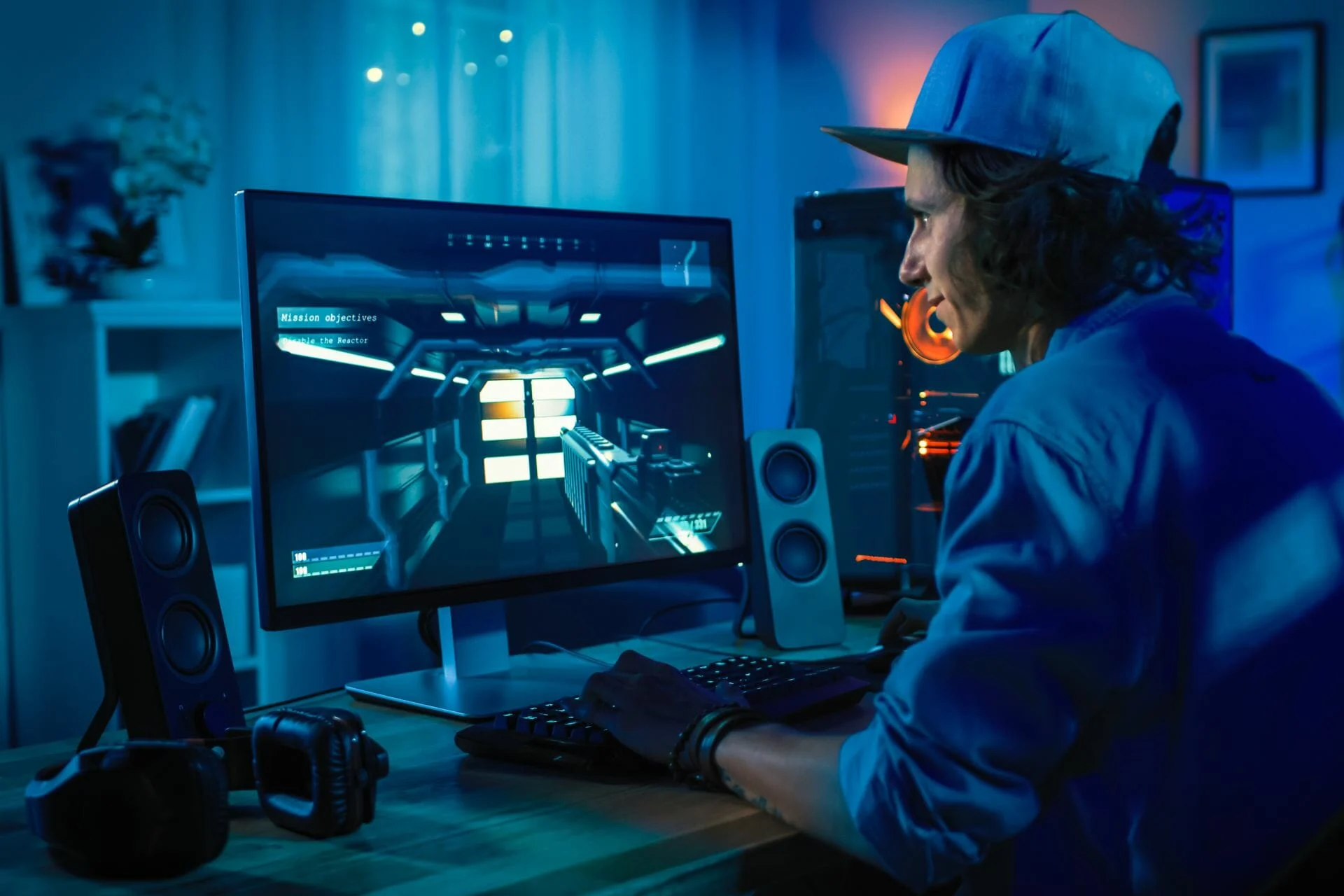
Buying your first gaming PC can be very intimidating. These devices are designed to perform at par and sometimes run better than other gaming consoles. On top of that, they are more expensive than the average PCs you can buy in the market. So, buying one will require you to do some research to ensure that you choose the suitable unit. And you should start with determining a gaming PC’s important parts and specifications.
Read on to learn about the basic information and PC specifications you need before you buy a gaming PC:
1 – Check the CPU specifications.
The CPU is the primary processing unit of a gaming PC. It is what instructs all of your hardware to run all of the programs and software, making its specifications a critical component when buying a gaming PC.
CPUs are built with a number of cores; the higher the cores, the better their performance. For example, an octa-core (8) will be faster at processing programs and video games than a quad-core (4). The most powerful gaming PCs have an octa-core processor, which can efficiently execute high-demanding programs.
2 – Get a higher memory.
System Memory, more known as RAM, is the unit that provides a space for your data to be accessed by the CPU. It lets your gaming PC use the data quickly. So the more RAM your gaming PC has, the more it can run programs simultaneously and faster.
Simply put, the RAM is where all the data of the running programs in your PC gets stored. If the program or app isn’t running, it stays in the hard drive. But once it runs, even if it’s hidden, its data remains on the RAM as long as it’s open.
An average computer usually comes with 4GB or 8GB RAM. However, a gaming PC requires more than that, as each has its own memory requirements. Gaming PCs usually have 16GB RAM or more. If you have more budget, it is best to go with 24GB RAM or higher if you live-stream video games.
If you can’t afford a gaming PC with higher RAM, you can opt for the typical 16GB build. You can, later on, add more RAM as long as the motherboard has additional slots.
3 – Look at the graphics card’s features.
Another necessary hardware to a gaming PC is its graphics card or GPU. It processes and shows the visuals of the operating system, programs, or games on your display monitor.
There’s a large selection of graphics cards. But there are only two manufacturers that are known in the gaming PC industry: AMD and NVIDIA. AMD has its Radeon graphics cards, while NVIDIA builds GeForce graphics cards.
But to put it simply, when checking the graphics card of the unit you’re planning to buy, check the model number. The higher the number of models, the newer the graphics card is. This means they have more features and can process visuals faster than their predecessors.
Another thing to remember is if you’re planning to play VR games on your new unit, you need a graphics card that is compatible with VR games. For NVIDIA, look for the GeForce RTX line, as they are designed to be VR-friendly. On the other hand, AMD has its own Radeon VR Ready Premium line of graphics cards for high-end gamers.
4 – Choose a high-storage hard drive.
Programs currently running in your system are stored in your RAM or System Memory. When you close these programs, their data is stored on the hard drive.
The hard drive is where all your files, operating systems, programs, and video games are stored. Most titles require high storage requirements, so the standard 250GB hard drive space may not suffice if you plan to install a lot of games.
So before buying a gaming PC, check the memory space of its hard drive to see if it’s big enough to handle games without slowing down its performance.
Aside from memory space, consider the type of hard drive you’re buying. Most users now prefer SSD (solid-state-hard drives) over traditional HDD (hard disk drives). SSDs may be more expensive than HDDs, but they deliver faster boot times and have tremendous file transfer speeds.
The best gaming PCs usually have a combo drive, which means the units have two storage devices: one for the operating system and one for all the other programs. Some gaming PCs run with two SSDs, but you can choose a unit with an SSD and HDD build if you’re on a tight budget.
5 – Don’t forget about the motherboard.
Although you may buy a prebuilt gaming PC, it is still important to check its motherboard. Its specification is highly critical if you wish to upgrade any hardware parts in the future. Keep in mind that your motherboard is where all the hardware is directly attached to. Think of it as the body of your gaming PC.
For example, if you plan to add more RAM or system memory later, you will need to look for a unit with ample slots for RAM. Aside from that, you will also need to ensure that the motherboard of the gaming PC you buy can support several graphics cards, processors, and RAM. This way, it will be easy for you to upgrade these parts in the future.